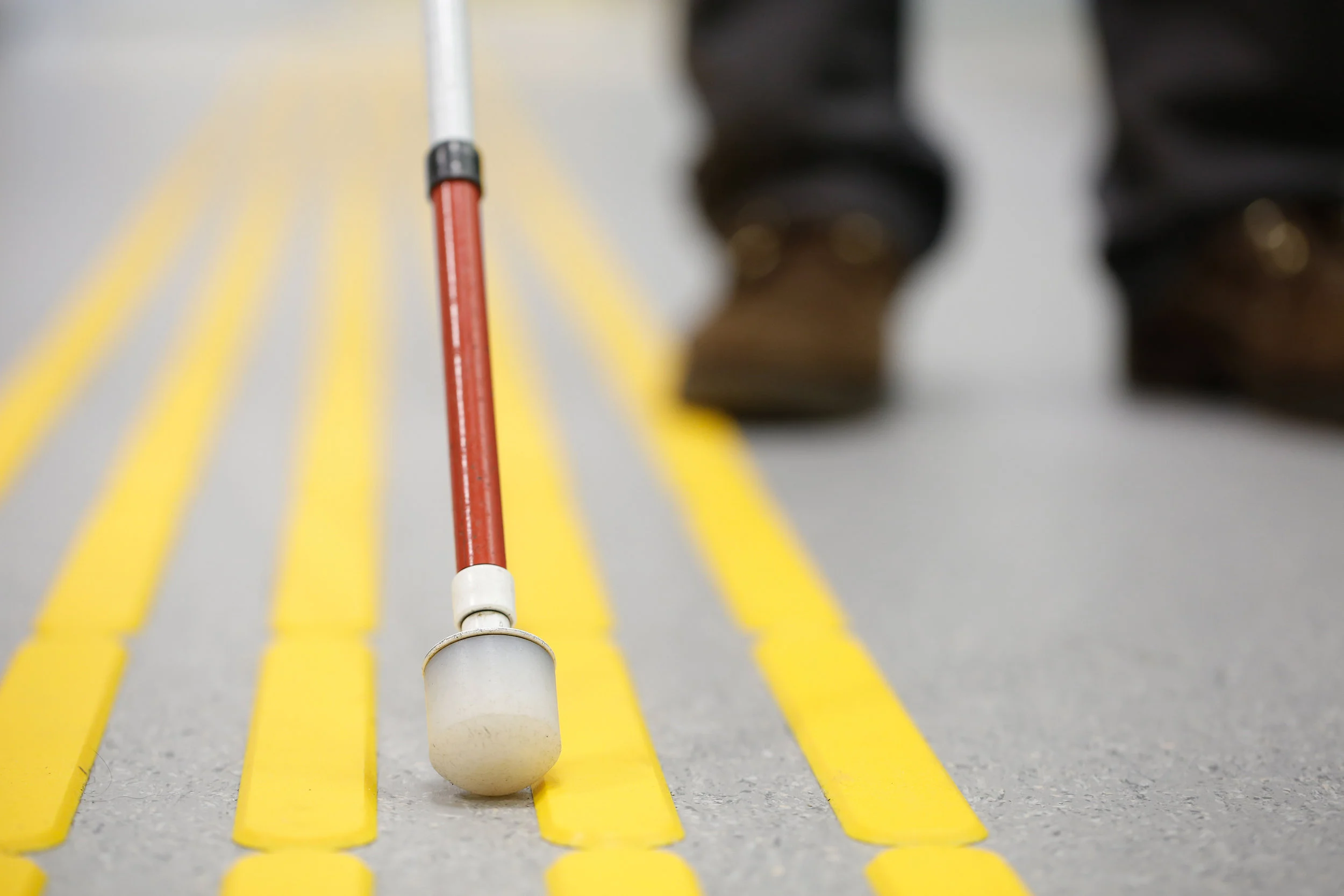WALK A MILE WITH MY CANE
Self-advocacy without the sass
“Courage is what it takes to stand up and speak;
courage is what it takes to sit down and listen.”
Have you ever been in a grocery store line and the person behind you is shuffling his feet and impatiently sighing while you try to sort your bills or swipe your card? Or have you ever had someone step in and take over something you were perfectly capable of doing yourself, just because they thought they were helping? Every visually-impaired person knows what it feels like to be in these situations. You sometimes feel your blood boiling inside and want to say something sarcastic or shout, "Leave me alone! I can do it. Don't you get it???"
But the fact is, they don't get it. They have no idea what you need, what you want, how to help, or even IF they should try to help. So let's teach the sighted to walk a mile with our cane. Let's self-advocate, not with sass or anger, but with understanding and with a desire to educate. Sure, there are some people out there who are legitimate jerks, but they are few and far between. Most people just need the courage to listen. Have the courage to stand up and speak. Here are some true stories about those who spoke up for themselves. Tell us yours.
NO! I DON;T WANT TO GIVE UP, THANK YOU!
Maggie, who is blind, was joining her other visually-impaired friends on a safety field trip to learn how to deal with fires and other home emergencies. As part of the field trip, a mock home was set up to demonstrate escape plans. The fireman in charge was teaching participants how to climb out a window in the event of an emergency. There was a first floor window that participants could climb out of to safety. There was also a second floor window, complete with a hanging escape ladder. Since her own apartment was on the second story, Maggie wanted to practice going out the second floor example. She had a little trouble swinging her leg around at first to exit the window. The fireman seemed impatient to finish the demonstration, and was perhaps a little uncomfortable watching a blind girl attempt it. "Why don't you just try climbing out the first floor window. It's easier," he said. "No." said Maggie. "I live on the second floor and I need to know how to escape through a second-story window. I am going to try again." She took a deep breath. As all eyes watched, including the impatient fireman, she swung her leg over the window, and backed down the ladder to the ground. Self-advocacy. Maggie proved to herself she could do it, and felt safer. She also gave the fireman something to think about.
PLEASE DON'T TOUCH ME.
Caroline, nearly blind, was at a mall, and needed to take the escalator to the upper level. Her mobility instructor had taught her to do it, and she wasn't afraid because she had done it before. Because the escalator was moving a bit fast, she was at the bottom, using her cane to figure out when to step on. Only her calculations were distracted when a stranger from behind took Caroline's hand, put it on the rail of the escalator and nudged her back, pushing her towards the bottom step. "Thank you but please don't help me," Caroling said boldly. "I know how to do this on my own and you are actually distracting me." The man walked away and watched Caroline board the escalator on her own. Later Caroline told a friend, "I don't mind if someone asks if I need help. I realize people are just trying to be nice. I will politely say yes, please or no, thank you. But a stranger should not put his hands on someone they don't know. It is especially disturbing to be touched by a stranger when you can't see. Unless it is a life-threatening situation, you should always ask before helping someone who visually impaired. Ask, then let the person tell you if she or he needs help, and what help you can give." Another self-advocacy lesson. Caroline spoke up for herself and the man learned something about trying to help a blind person.
